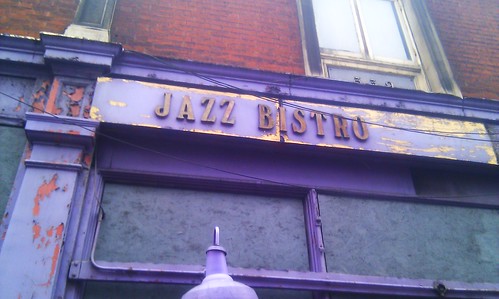As a kid in the late 1960s and 1970s, I didn't appreciate all that Don Kirshner had done for the pop music that I loved. Of course I loved The Monkees and The Archies, and later in life I would come to discover the history of the Brill Building and the amazing artists it once housed. Eventually, I would come to see how it all fit together. Yet, back when I was starting to explore music on my own, Don Kirshner was just this funny-looking guy with bad hair and an incredibly strong New York accent, who happened to host a show which I got to watch on weekends during the summer holidays. I loved it, and it challenged me, but I didn't appreciate at the time just how special the show was. The performances were usually live, sometimes of questionable quality and sometimes unspeakably great. They were always real and honest. This, along with Burt Sugarman's equally amazing "Midnight Special," left an indelible mark on my mind, and both were arguably, to some extent, the precursors of both David Sanborn's lamentably short-lived "Night Music" and Jools Holland's long-running "Later."
Here's one example of what made "Don Kirshner's Rock Concert" so special - The Steve Miller Band perform a new, unrecorded song, called "Fly Like an Eagle." How many bands in these days of industrialised music would be allowed, encouraged even, to play a fairly rough version of an unknown song for six minutes on a gig set to be aired on national TV? And what producer in his right mind would have left it in the final cut for broadcast?
I think one of the reasons for the success of "Rock Concert" was its ability to recreate the atmosphere of a large venue gig, on a similar scale to the real thing. For the kids in the hinterlands of rural America, it must have been astonishing to switch on the TV and find themselves in the midst of a raucous Black Sabbath arena gig, which they could probably have never managed to get to in reality.
To his credit, Don Kirshner was not shy about going against the grain. If you can feature heavy rock acts that fill arenas across the country, why would you expend valuable airtime on uncommercial, heretical freaks like the New York Dolls? Because artistically it's the right thing to do, and it makes commercial sense in the long run, that's why. How many frustrated, misunderstood rockers in the middle of nowhere suddenly found new courage in the wake of seeing this?
Similarly, with the likes of REO Speedwagon, Journey, and Styx in the ascendant, Kirshner gave the Ramones 10 minutes of exposure in 1977. Decidedly not consensus-led thinking.
Goodbye, Don Kirshner, and thank you.
Tuesday, 18 January 2011
Monday, 17 January 2011
Summer in the City
Amazing footage of 1950s London, shot from the back of a car and apparently intended for use as background footage for driving scenes in films. Via the Huntley Film Archives.
Wednesday, 5 January 2011
Blues in the key of W
Props to the wonderful Linda Heck for pointing me to this contemplation of sound from 1966 - 67: a reading by John Cage, Rahsaan Roland Kirk in and around London, including at Ronnie Scott's, and pianist David Tudor, filmed by documentary director Dick Fontaine. Some excellent wacked-out musique concrete and retro electronica is interspersed, as well as a fine performance by Roland Kirk of "Three for the Festival" and an incendiary excerpt from a version of "Rip, Rig & Panic," the title song from his greatest album, the studio version of which follows part three.
Labels:
David Tudor,
Dick Fontaine,
John Cage,
Rahsaan Roland Kirk
Monday, 3 January 2011
Night Life
I grew up privileged to hear all sorts of music, and my dad was a huge Ray Price fan when I was a small boy. On one very memorable occasion, he returned from a Ray Price gig at the legendary/notorious Panther Hall Ballroom in Fort Worth, Texas, with an autograph from Ray, dedicated to me. Though I was only about five at the time, I was hugely impressed, and it's a moment I've never forgotten. This is a song I could listen to on infinite repeat. Ray gives it up completely on this number, penned by a then-unknown "boy down in Texas way" (Willie Nelson), with some of the most arresting pedal steel playing in the history of music. "Knockin' on your record player," indeed.
Funky New Year
I had the pleasure of seeing the Art Ensemble of Chicago twice in London, a number of years ago. Neither show featured Joseph Jarman, who had already become a Buddhist monk, and in the second show, Roscoe Mitchell was replaced by a tenor/soprano player, I believe due to ill health. Both shows were amazing, but it would have been nice to have caught them a bit earlier, as an intact unit with a much more elaborate set-up. This version of "Funky AECO" cuts off abruptly, but the footage and performance are outstanding. It seems as though this piece always produced surprises when played live, such as the Japanese recording where Joseph Jarman's sopranino sax squares off against Roscoe Mitchell's bass sax (also seen here). Their sense of abandon and discovery in revisiting their own repertoire was a unique and beautiful thing, and something I wish more musicians had some sense of. If this is your sort of scene, then stick around for the three-part documentary which follows.
Subscribe to:
Posts (Atom)



